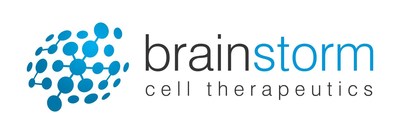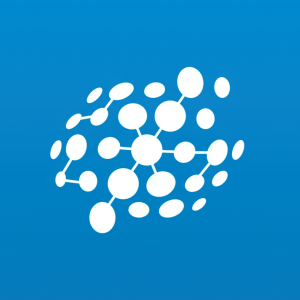BrainStorm Presents New Biomarker Analyses from NurOwn's Phase 3 ALS Trial at the ALS ONE Research Symposium
BrainStorm Cell Therapeutics Inc. (BCLI) presented new biomarker analyses for NurOwn® at the 5th Annual ALS ONE Research Symposium, highlighting its efficacy in treating amyotrophic lateral sclerosis (ALS). The study indicates that NurOwn affects biomarkers related to neuroinflammation and neurodegeneration across varying disease progression levels. The data reveals a significant treatment effect in less advanced ALS patients, with a preserved functional score of 2 points over 28 weeks compared to placebo. These findings support the need for considering floor effects in clinical endpoint evaluations.
- NurOwn shows consistent biomarker responses impacting neuroinflammation, neurodegeneration, and neuroprotection.
- Statistically significant preservation of function (2 points) in ALS patients treated with NurOwn compared to placebo (p<0.05).
- Biomarker analysis confirms NurOwn's multifaceted mechanism of action and its potential in ALS treatment.
- None.
Insights
Analyzing...
NurOwn® drove biomarker responses, affecting pathways related to neurodegeneration, neuroinflammation, and neuroprotection, that were consistent in participants with both advanced ALS and less advanced disease, confirming the importance of accounting for ALSFRS-R floor effects when evaluating clinical endpoints
NEW YORK, Oct. 7, 2022 /PRNewswire/ -- BrainStorm Cell Therapeutics Inc. (NASDAQ: BCLI), a leading developer of adult stem cell therapeutics for neurodegenerative diseases, today announced the presentation of new biomarker analyses supporting the therapeutic benefit of NurOwn® in amyotrophic lateral sclerosis (ALS) at the ongoing 5th Annual ALS ONE Research Symposium. The presentation was delivered by Dr. Stacy Lindborg, Chief Development Officer at Brainstorm, and entitled, "The Relationship between CSF Biomarkers and Efficacy of Treatment with NurOwn (MSC-NTF cells)."

"The new biomarker analyses presented today provide further evidence of NurOwn's multifaceted mechanism of action and show consistent patterns in study participants regardless of the level of disease progression at baseline," said Dr. Stacy Lindborg, Chief Development Officer at Brainstorm. "This compelling finding confirms the importance of accounting for ALSFRS-R floor effects when evaluating clinical endpoints in our phase 3 trial and may further validate the results of subgroup analyses on clinical endpoints in our Phase 3 study which minimize the ALSFRS-R floor. When the subgroup of participants above 26 are analyzed, 2 points of function are preserved on average across 28 weeks in participants treated with NurOwn compared to placebo (p<.05). Moreover, statistical modeling identified biomarkers that have the potential to predict clinical response to NurOwn observed in the trial, with markers of neuroinflammation, neurodegeneration, and neuroprotection selected in the final model. Novel therapies that simultaneously target multiple pathways may offer great potential in the treatment of ALS and highlights the advantages that may come with NurOwn's ability to simultaneously modulate multiple biological pathways."
Presentation Highlights
NurOwn Phase 3 Trial Patient Population and Clinical Outcomes
- NurOwn's Phase 3 trial is a strong outlier compared to other late-stage ALS trials due to the inclusion of participants with more advanced disease. The average ALSFRS-R score in NurOwn's Phase 3 trial was 31, 5 points lower than the registrational trial for the most recently FDA-approved therapy. The inclusion of more advanced participants impacts the assessment of all clinical endpoints based on the ALSFRS-R, as a result of the inability to measure ongoing clinical decline with scale in these participants (i.e., a floor effect). To draw valid conclusions from clinical endpoint data collected in the trial, the floor effect must be addressed.
- As previously announced, a NurOwn treatment effect was observed in participants in a pre-specified subgroup with less advanced disease (ALSFRS-R baseline score of ≥35) across two endpoints: the primary endpoint (clinical responder analysis) and a key secondary endpoint (average change from baseline to the end of the trial). The difference between NurOwn and placebo for this key secondary endpoint was nominally statistically significant (p=0.050).
Biomarker Data
- An analysis was performed to evaluate the effects of NurOwn and placebo on cerebrospinal fluid (CSF) biomarkers across pathways important to ALS of neuroinflammation, neurodegeneration and neuroprotection. Additional goals were to understand the role that baseline ALSFRS-R values plays on biomarker trajectories and to understand the predictive power of biomarkers on clinical outcomes.
- As observed in earlier trials, NurOwn was shown to decrease biomarkers associated with neuroinflammation and neurodegeneration, and increase neuroprotective biomarkers over 20 weeks, demonstrating its multifaceted mechanism of action.
- New analyses looked at the trajectory of biomarkers for the subgroups of participants with baseline ALSFRS-R scores >25 and ≤25, those most likely to be impacted by the floor effect of the scale. Decreases in neuroinflammatory and neurodegenerative markers and increases in neuroprotective markers in NurOwn treated participants compared to placebo were observed in both subgroups. These results indicate that NurOwn had similar biological effects on ALS participants regardless of the level of disease progression at baseline.
- Further statistical modeling pre-specified prior to unblinding of the data identified three biomarkers that were predictive of clinical outcomes: baseline LAP, baseline neurofilament light (NfL) and mean change in Galectin-1. These biomarkers relate to neuroinflammatory, neurodegenerative, and neuroprotective pathways, respectively.
Chaim Lebovits, Chief Executive Officer of Brainstorm commented, "We are grateful to ALS ONE for the opportunity to present these important new data on NurOwn. The biomarker data and statistical analyses further our understanding of NurOwn's mechanism of action and therapeutic potential."
A copy of the of Dr. Lindborg's presentation is available here and on the Events & Presentation page of Brainstorm's corporate website. A replay of Dr. Lindbog's recorded presentation will be available on the Events & Presentation page as of 12pm U.S. EST on Wednesday, October 12, 2022.
Phase 3 NurOwn Study Design
The Phase 3 NurOwn trial was a multi-center, placebo-controlled, randomized, double-blind trial designed to evaluate the safety and efficacy of repeat doses of NurOwn in 189 ALS participants. It was conducted at six centers of excellence: University of California Irvine (Dr. Namita Goyal); Cedars-Sinai Medical Center (Dr. Matthew Burford, Dr. Robert Baloh); California Pacific Medical Center (Prof. Robert Miller, Dr. Jonathan Katz); Massachusetts General Hospital (Prof. Merit Cudkowicz, Dr. James Berry); University of Massachusetts Medical School (Prof. Robert Brown) and Mayo Clinic (Prof. Anthony Windebank, Dr. Nathan Staff). Potential participants with ALS were screened during an 18-week run-in period and those who were rapid progressors (defined as participants with at least a 3-point decrease in ALSFRS-R score during the run-in period) were randomized 1:1 to receive three intrathecal injections (8 weeks between each injection) of NurOwn or placebo. Participants were followed for 28 weeks after treatment. The primary endpoints of the trial were safety assessments and a responder analysis of the rate of decline in ALSFRS-R score over 28 weeks, where response was defined as participants with a 1.25 points/month improvement in the post-treatment versus pre-treatment slope in ALSFRS-R at 28 weeks following the first treatment. Secondary endpoints included the percentage of participants with disease progression halted or improved, ALSFRS-R change from baseline, combined analysis of function and survival, slow vital capacity, tracheostomy-free survival, overall survival and cerebrospinal fluid biomarker measurements. For more information on the trial, visit https://clinicaltrials.gov/ct2/show/NCT03280056.
About NurOwn®
The NurOwn® technology platform (autologous MSC-NTF cells) represents a promising investigational therapeutic approach to targeting disease pathways important in neurodegenerative disorders. MSC-NTF cells are produced from autologous, bone marrow-derived mesenchymal stem cells (MSCs) that have been expanded and differentiated ex vivo. MSCs are converted into MSC-NTF cells by growing them under patented conditions that induce the cells to secrete high levels of neurotrophic factors (NTFs). Autologous MSC-NTF cells are designed to effectively deliver multiple NTFs and immunomodulatory cytokines directly to the site of damage to elicit a desired biological effect and ultimately slow or stabilize disease progression.
About BrainStorm Cell Therapeutics Inc.
BrainStorm Cell Therapeutics Inc. is a leading developer of innovative autologous adult stem cell therapeutics for debilitating neurodegenerative diseases. The Company holds the rights to clinical development and commercialization of the NurOwn® technology platform used to produce autologous MSC-NTF cells through an exclusive, worldwide licensing agreement. Autologous MSC-NTF cells have received Orphan Drug designation status from the U.S. Food and Drug Administration (FDA) and the European Medicines Agency (EMA) for the treatment of amyotrophic lateral sclerosis (ALS). BrainStorm has completed a Phase 3 pivotal trial in ALS (NCT03280056); this trial investigated the safety and efficacy of repeat-administration of autologous MSC-NTF cells and was supported by a grant from the California Institute for Regenerative Medicine (CIRM CLIN2-0989). BrainStorm completed under an investigational new drug application a Phase 2 open-label multicenter trial (NCT03799718) of autologous MSC-NTF cells in progressive multiple sclerosis (MS) and was supported by a grant from the National MS Society (NMSS).
Safe-Harbor Statement
Statements in this announcement other than historical data and information, including statements regarding future BLA submission, constitute "forward-looking statements" and involve risks and uncertainties that could cause BrainStorm Cell Therapeutics Inc.'s actual results to differ materially from those stated or implied by such forward-looking statements. Terms and phrases such as "may," "should," "would," "could," "will," "expect," "likely," "believe," "plan," "estimate," "predict," "potential," and similar terms and phrases are intended to identify these forward-looking statements. The potential risks and uncertainties include, without limitation, BrainStorm's need to raise additional capital, BrainStorm's ability to continue as a going concern, BrainStorm's plan to submit a BLA for NurOwn® to the FDA, prospects that the FDA will accept BrainStorm's BLA for NurOwn® for filing and review, prospects that the FDA does not view BrainStorm's NurOwn® product candidate to have demonstrated adequate safety or effectiveness, prospects for future regulatory approval of BrainStorm's NurOwn® treatment candidate, the success of BrainStorm's product development programs and research, regulatory and personnel issues, development of a global market for BrainStorm's products, if approved, and services, the ability to secure and maintain research institutions to conduct BrainStorm's clinical trials, the ability to generate significant revenue, the ability of BrainStorm's NurOwn® treatment candidate to achieve broad acceptance as a treatment option for ALS or other neurodegenerative diseases, BrainStorm's ability to manufacture and commercialize the NurOwn® treatment candidate, obtaining patents that provide meaningful protection, competition and market developments, BrainStorm's ability to protect our intellectual property from infringement by third parties, health reform legislation, demand for our services, currency exchange rates and product liability claims and litigation; the impacts of the COVID-19 pandemic and additional strains of COVID-19 or any other health epidemic on our clinical trials, supply chain, and operations; potential delays in any planned or anticipated review or interactions with the FDA due to disruptions at, or inadequate funding of, the FDA; the impact of global economic and political developments on our business, including rising inflation and capital market disruptions; the current conflict in Ukraine, economic sanctions and economic slowdowns or recessions that may result from such development; and other factors detailed in BrainStorm's annual report on Form 10-K and quarterly reports on Form 10-Q available at http://www.sec.gov. These factors should be considered carefully, and readers should not place undue reliance on BrainStorm's forward-looking statements. The forward-looking statements contained in this press release are based on the beliefs, expectations, and opinions of management as of the date of this press release. We do not assume any obligation to update forward-looking statements to reflect actual results or assumptions if circumstances or management's beliefs, expectations or opinions should change, unless otherwise required by law. Although we believe that the expectations reflected in the forward-looking statements are reasonable, we cannot guarantee future results, levels of activity, performance, or achievements.
Logo - https://mma.prnewswire.com/media/1166536/BrainStorm_Logo.jpg
CONTACTS
Investor Relations:
John Mullaly
LifeSci Advisors, LLC
Phone: +1 617-429-3548
jmullaly@lifesciadvisors.com
Media:
Lisa Guiterman
lisa.guiterman@gmail.com
![]() View original content:https://www.prnewswire.com/news-releases/brainstorm-presents-new-biomarker-analyses-from-nurowns-phase-3-als-trial-at-the-als-one-research-symposium-301643729.html
View original content:https://www.prnewswire.com/news-releases/brainstorm-presents-new-biomarker-analyses-from-nurowns-phase-3-als-trial-at-the-als-one-research-symposium-301643729.html
SOURCE BrainStorm Cell Therapeutics Inc







